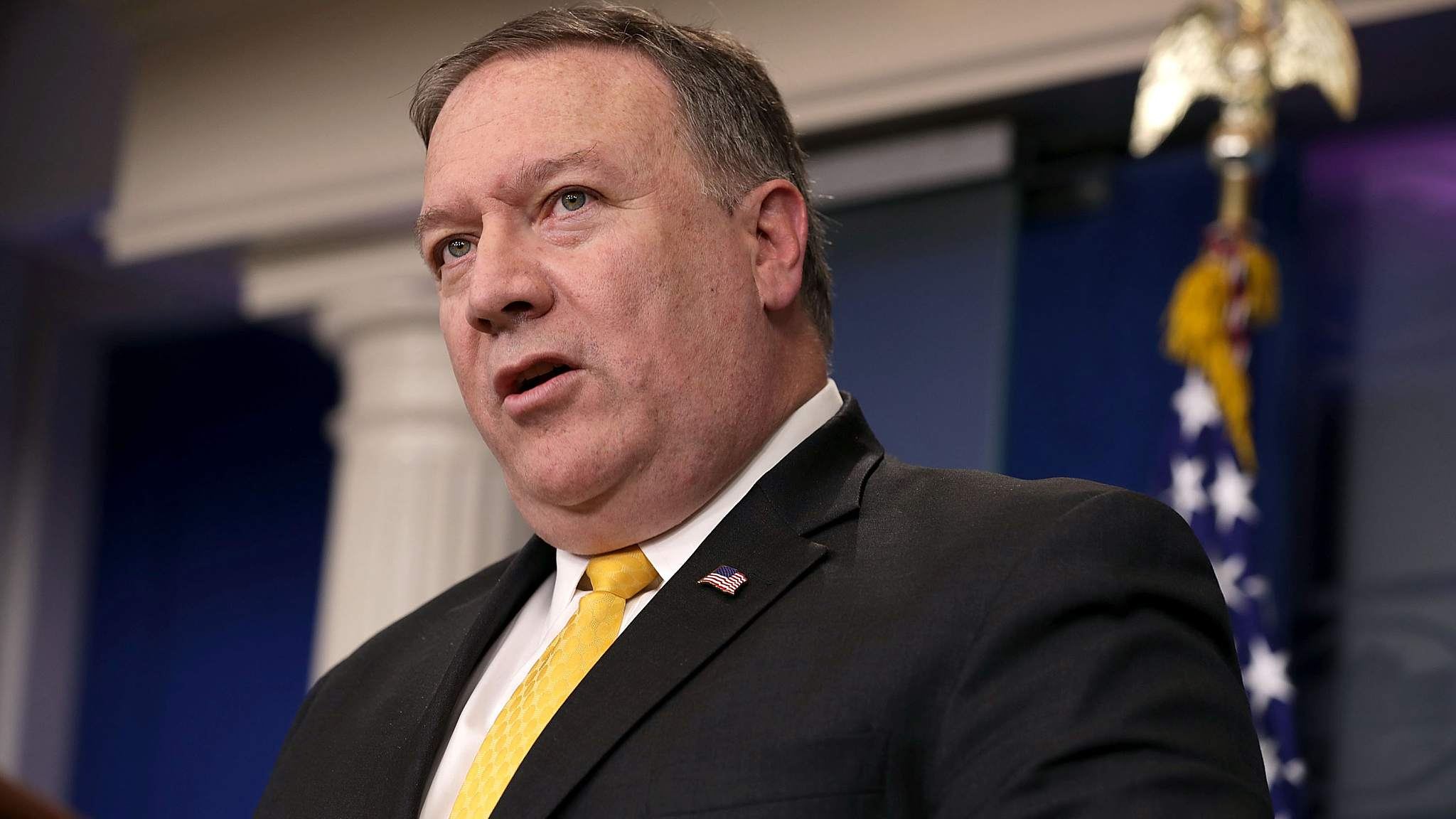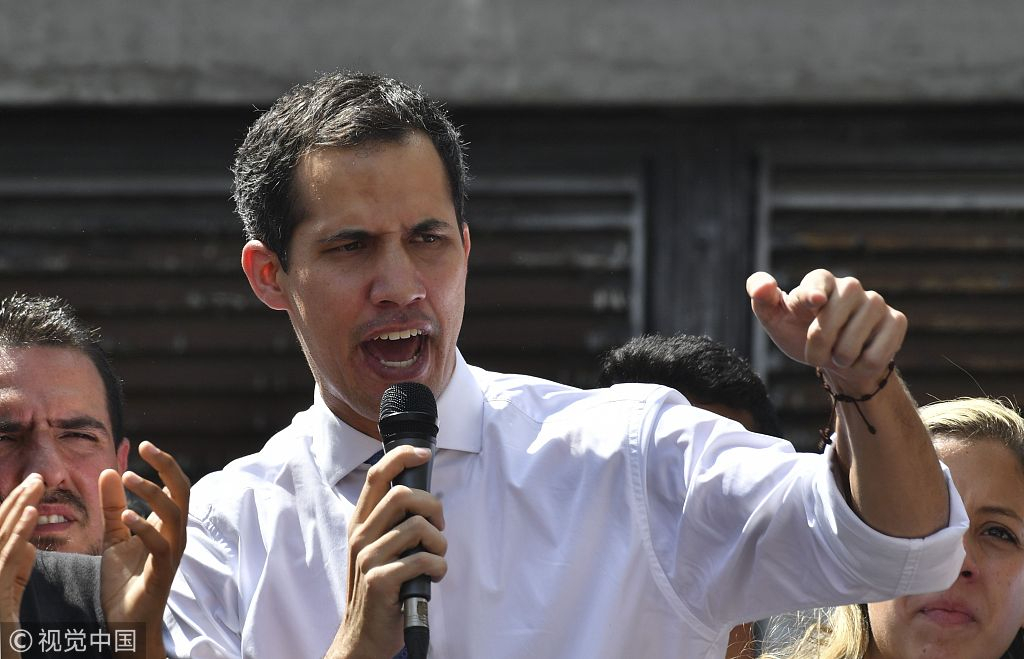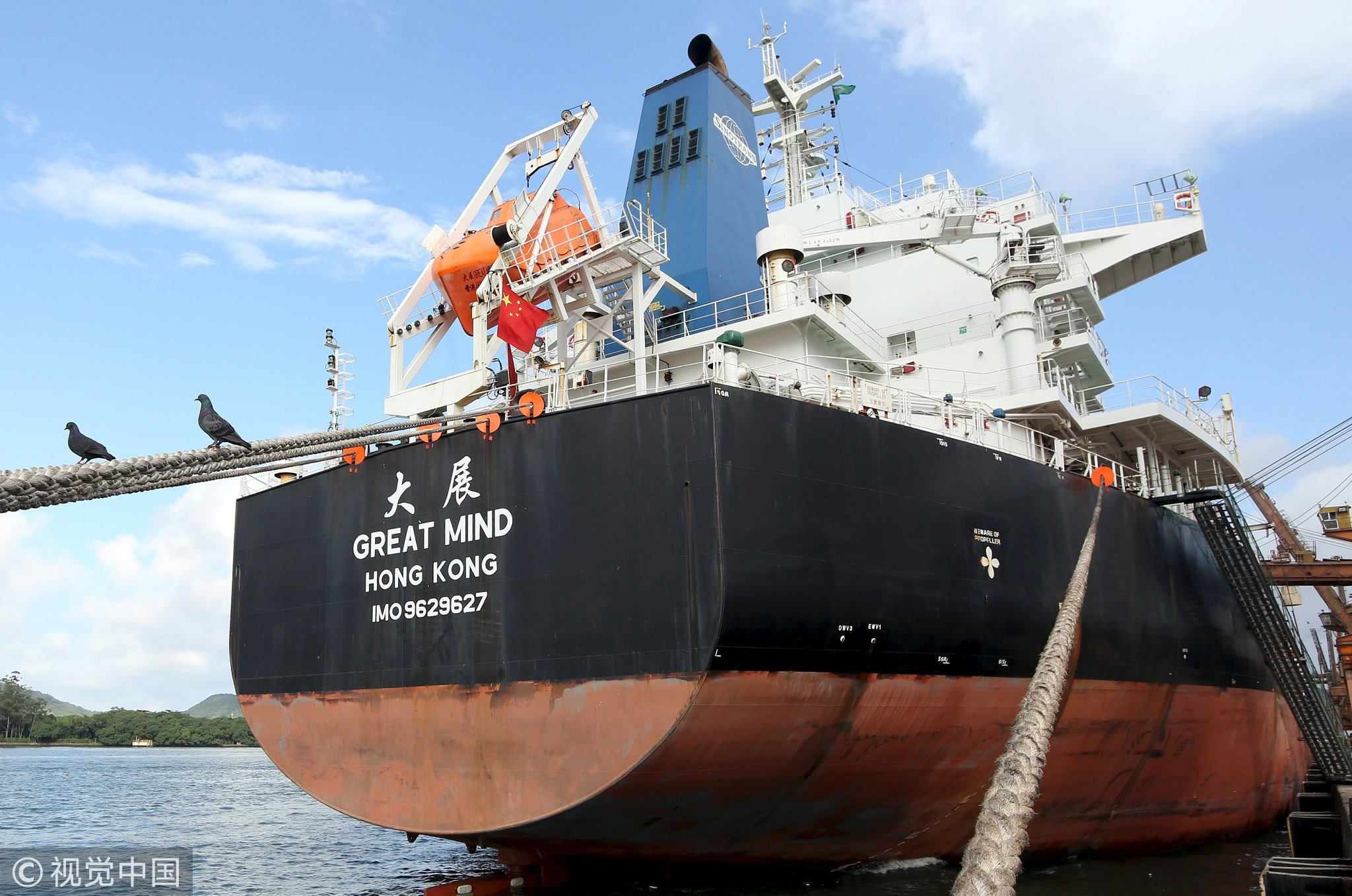
Opinion
22:56, 17-Apr-2019
Pompeo's talks on Latin America are product of zero-sum desperation
Adam Garrie

Editor's note: Adam Garrie is the director of the UK-based global policy and analysis think tank Eurasia Future and co-host of a talk show "The History Boys." The article reflects the author's opinion and not necessarily the views of CGTN.
Even before the United States became a global hegemon, the post-colonial nations of Latin America had been America's geopolitical playground, economic dumping ground and the testing ground for a new era in U.S. geopolitical adventurism.
In 1898, the modern American empire was born when the United States fought a short but decisive war against Spain. As a result of the war, the U.S. attained its first overseas colonies including Cuba and Puerto Rico in the western hemisphere as well as The Philippines and Guam in the Asia-Pacific.
Throughout the 20th century, the U.S. has been responsible for backing or organizing coups or civil conflicts in most Latin American nations including Brazil, Bolivia, Chile, Mexico, Argentina and Colombia. In Guatemala, the U.S.-based United Fruit Company created an atmosphere of financial imperialism wherein the U.S. supported the company by crushing popular liberation movements in the country led by those opposed to "company rule." The phrase "banana republic" owes its origins to the United Fruit Company and the U.S. government's cooperative practices in Central America during much of the 20th century.
The U.S. has likewise been involved in fomenting or taking sides in wars and civil conflicts in El Salvador, Grenada, Panama and Nicaragua during the final decades of the 20th century. Today, the U.S. has openly expressed its desire to see the unilateral removal of Venezuela's President Nicolas Maduro and its favor to opposition leader Juan Guaido.

Venezuela's National Assembly president Juan Guaido speaks before a crowd of opposition supporters during an open meeting at the Central University of Caracas (UCV) in Caracas, January 21, 2019. /VCG Photo
Venezuela's National Assembly president Juan Guaido speaks before a crowd of opposition supporters during an open meeting at the Central University of Caracas (UCV) in Caracas, January 21, 2019. /VCG Photo
The U.S. clearly has a history with multiple Latin American nations that is anything but placid. It is against this background that it is all the more extraordinary that U.S. Secretary of State Mike Pompeo dedicated his recent tour of multiple Latin America nations to issuing heated tirades against China, when he claims that China has "helped destroy" Venezuela.
China's involvement with Latin American nations is strictly limited to trade, commercial relations and mutually agreed upon development initiatives. China has never been at war with any Latin American nation, has never provoked any coups in Latin America and has never commented on its preferences for any particular style of government anywhere in Latin America.
Although all nations will ultimately forge commercial partnerships based on their own interests, the fact that China has never played a geopolitically meddlesome role in the western hemisphere is an immediate source of attraction to nations seeking the kind of prosperity that is only possible within a stable political atmosphere.
Zhao Bentang, the director-general of the Department of Latin American and Caribbean Affairs at China's Ministry of Foreign Affairs, has made China's position very clear. In respect to Pompeo's abrasively worded admonition against Latin American countries who cooperate with China, Zhao said:
"China will never force Latin America to 'take sides' between China and the U.S., nor does it want the current Sino-U.S. disputes to affect China-Latin America relations." He also criticized America's paternalistic approach to Latin American nations whose development Zhao said was in the past arrested by U.S. meddling.

A Chinese ship is anchored at Brazil's Port of Santos while being loaded with soybeans, May 19, 2015. /VCG Photo
A Chinese ship is anchored at Brazil's Port of Santos while being loaded with soybeans, May 19, 2015. /VCG Photo
Although Pompeo's language is shocking given that he is America's top diplomat, when his impassioned remarks are viewed through a dispassionate analysis, it is clear that he is speaking from the point of view of frustration and a diminishing sense of confidence. By not only criticizing China-Latin America relations through a narrow zero-sum mentality but also indicating that only the U.S. can be a positive partner for Latin American countries, Pompeo admitted that he is actively worried by the notion that Latin American countries might wish to work with both China and the U.S. or in some cases, such countries would see China as a more important partner.
Of course, China is perfectly aware that certain Latin American nations will tend to be closer to the U.S. This has never been a source of worry for China in the past and Zhao has confirmed that it is not a worry now.
Beyond this, while the U.S. often conducts major naval provocations in the South China Sea, East China Sea and Taiwan Strait which are aimed at upsetting China's internal situation and its relations with many of its neighbors and partners, China has never conducted any sort of military provocations in Latin America nor anywhere else in the western hemisphere.
As such, it is hypocritical for Mike Pompeo to effectively accuse China of doing in Latin America what the United States continues to do on all sides of China.
(If you want to contribute and have specific expertise, please contact us at opinions@cgtn.com.)

SITEMAP
Copyright © 2018 CGTN. Beijing ICP prepared NO.16065310-3
Copyright © 2018 CGTN. Beijing ICP prepared NO.16065310-3